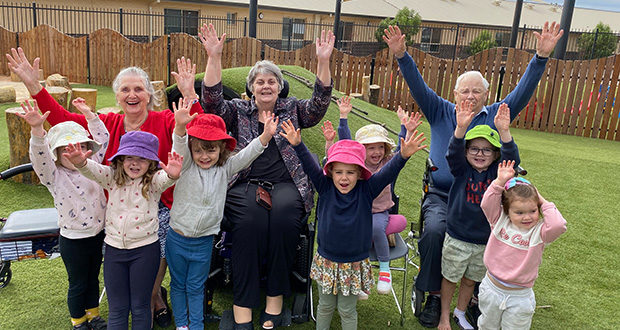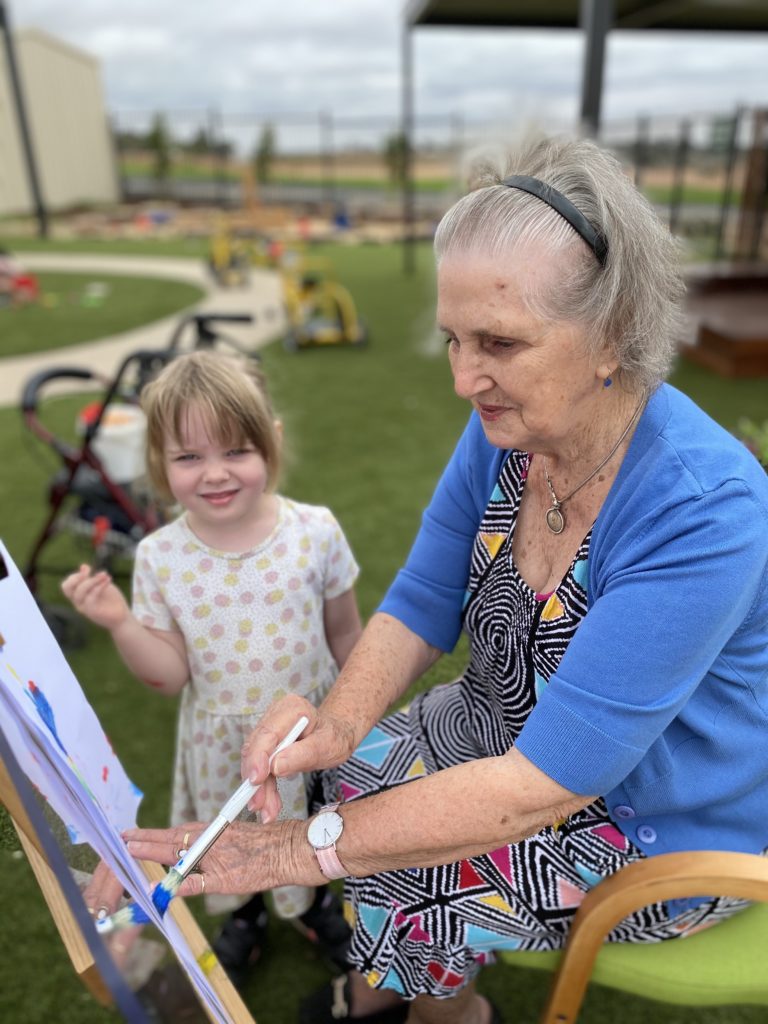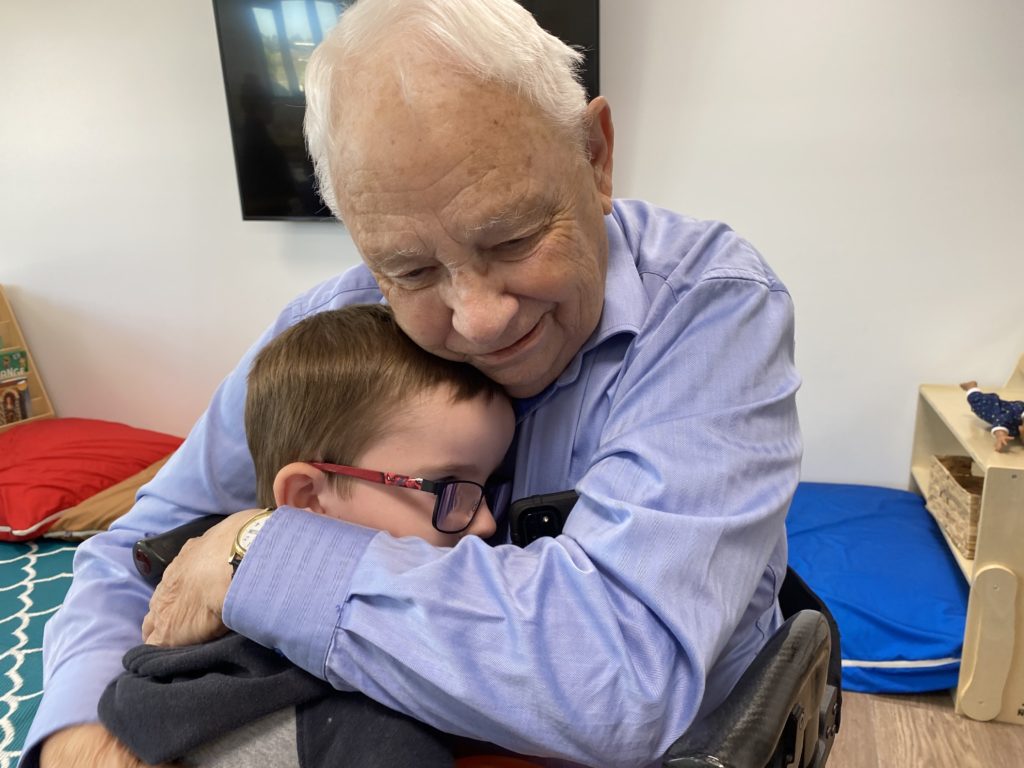An aged care home is bringing together older people and children to increase social connectivity and reduce loneliness.
Chief executive officer of Rural Care Australia, Darren Midgley, currently operates Chaffey Aged Care, a 100-bed residential facility in northwest Victoria.
He says that older people often become socially isolated as they come into aged care.
"In the program, we see a reduction in depression and social isolation amongst the older people," he told Aged Care Insite.
"They become more engaged – there is nothing more motivating than a four-year-old getting an older person to do something they might otherwise choose not to do."
Government data shows that over half of older people living in residential aged care show signs of depression.
Intergenerational programs may help to counter negative mental health effects, with emerging research showing promising results.
"Older people crave touch and interaction, and the children are very tactile," Darren points out.
"On the other side, children have a need to learn about the environment around them and older people want to share their life experiences."
While relieving loneliness in residents, older adults can also fill the role of a grandparent when a child might have none.
Through regular interactions, children also learn to normalise the perception of ageing and become more considerate to people around them.
"The children will clean up the floor, pick up all their toys and make it a safe place for their older friends or their 'grand friends', so the risk of falls is significantly lower," Darren says.
"So what we see are these formations of lovely relationships, which sometimes last beyond intergenerational programmes."
He shares one experience where a child named Zoe formed a strong bond with Norma, a 96-year-old woman.
"Norma wears this little bracelet that Zoe had made for her out of pipe cleaner and beads that she is still wearing more than a year down the track," Darren says.
Darren says that intergenerational programs are just starting to get off the ground in Australia, whereas they're more common overseas.
For example, a UK tv-program called "Old People's Home for 4-Year-Olds" follows aged care residents spending their day with preschool children.
The show has revealed remarkable changes in older adults.
Darren says there's this great opportunity to bring the generations together.
"Children have such a need to be nurtured and older people have such capacity to nurture.
"They just complement the needs and the service provision for older people and younger people so well."
He believes that these programs have the potential to address the aged care crisis, stating that timing is critical.
"If we're going to improve Australia's aged care system and protect society's most vulnerable, it's vital that we move quickly.
"Population ageing is already putting tremendous pressure on the health system, and these challenges will expand with time.
"A sustainable intergenerational model of care within Australia's aged care system requires a fundamental shift at government and regulatory levels."
Associate Professor Ruth Peters, senior researcher at Neuroscience Research Australia (NeuRA), aims to back up the benefits of the programs with scientific evidence.
She's recently been awarded $3.7 million from the National Health and Medical Research Council (NHMRC) to investigate community readiness and its resources.
Ruth found during her preliminary survey that the programs show huge potential.
"90 per cent of the people who responded agreed that these programs will help build relationships between generations and possibly reduce potential loneliness in adults," she says.
The current study will combine eight leading universities and institutes to initiate the 'INTErGenerational Intervention to Reduce fraIlTY (INTEGRITY) trial'.
It's an Australian-first trial to research the benefits of bringing together older people and preschool children.
"We know that people want it and that it can be delivered," Ruth says.
"Now we need a proper clinical trial where we can formally compare the intergenerational practice to a control group to see whether it will bring benefit."
Do you have an idea for a story?Email [email protected]
 Aged Care Insite Australia's number one aged care news source
Aged Care Insite Australia's number one aged care news source



